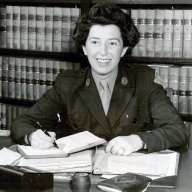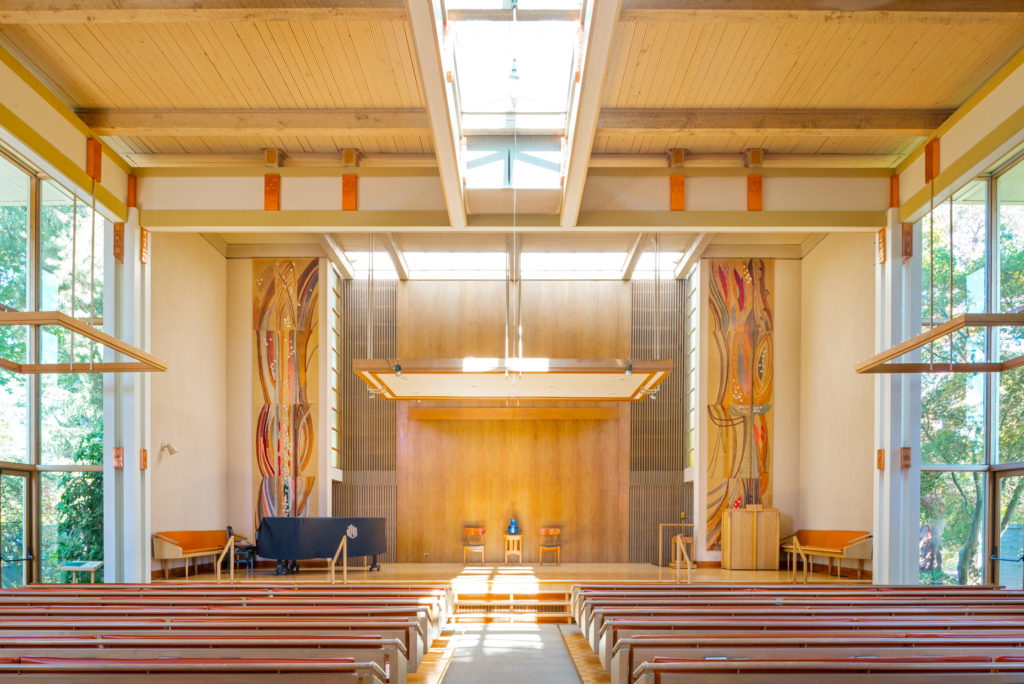Lotta Hitschmanova, CC (1909-11-28 – 1990-08-01) was a Canadian humanitarian. In 1945, she founded the Unitarian Service Committee of Canada, an international development organization that began as a small group of aid workers sending supplies to war-torn Europe for relief and reconstruction.

(1909 – 1990)
She was born in Prague, where she earned a Ph. D. She worked as a journalist, and was an outspoken critic of the Nazis. Both of her parents died in the Holocaust, while she had to flee Czechoslovakia in 1938. For four years she wandered over Europe, eventually finding her way to Marseilles, where she helped refugee support groups.
In 1942, after a 46-day voyage on a converted banana boat, she arrived penniless in Montreal “with an unpronounceable name” as she said, and feeling completely lost. Three years later, she founded the Unitarian Service Committee (USC Canada). Her mission from the mid-1940s into the 1980s, was to educate and mobilize Canadians. “I experienced personally how much it hurts to be hungry. To be a refugee, to be without a home, to be without country, to be without friends. And this is something dreadful; you have no more roots, you have no one to turn to.”
Her work took her first back to post-war Europe, and then to Africa and Asia, to conflict zones and newly-independent nations, where the need was greatest. She urged Canadians to become aware of the living conditions of people living far away, and calling upon them to take action and help: “Charity begins at home…and then it goes on to embrace next door neighbours and all those who need help.”
Yet, Lotta’s influence went well beyond her work with USC Canada. Her educational efforts over four decades, provided a foundation for the Canadian public’s ongoing support for international humanitarian aid and development assistance. I remember listening to her talk about her work, and admiring her unique army nurse uniform, complete with military-style hat. She spoke with a thick Czech accent, but it never detracted from her message.
Each year she travelled to poor and strife-torn towns and villages of the world, in need of Canadian assistance to recover from drought, war, disease and poverty. Her message was sincere, and received as such by many thousands of Canadians. People from all faiths and occupations responded by becoming lifelong supporters. USC’s address 56 Sparks Street, Ottawa became the most recognizable address in Canada.
Nova Scotia author Joan Baxter wrote: “It was Lotta Hitschmanova who shaped my values as a Canadian, and the type of Canada I believe in. She helped give us our identity.”
I am neither the first person, nor the last who was moved by Lotta. The CC after Lotta’s name refers to her merit as a Companion of the Order of Canada, the highest grade after that of the Monarch and the Governor General, given her in 1980. She has received numerous other awards and honours from countries and organizations on four continents.
In 2007, the Canadian Museum of History included her as one of the founders in its Canadian Personalities Hall. In 2013, when the Museum conducted a poll, she received the most votes as the person who had shaped Canada’s history most, ahead of Tommy Douglas, Terry Fox and Pierre Trudeau.
Her greatest legacy remains is the deep, emotional reverberation of her values in the memory by hundreds of thousands of Canadians. Her background as an articulate refugee impacted and enriched Canadian society. Today, Canadians – especially – are awaiting the next Lotta Hitschmanova, who may be arriving soon in Canada. Let us welcome each and every one.
In Vancouver, folk singer Vera Johnson (1920 – 2007) commented for decades on political events starting in 1949. Her humorous, original songs spanned every conceivable forbidden topic: censorship, divorce, family life, liberation, politics, religion and sex. Her most famous song, The Fountain, described the Vancouver hippie protests of 1968. She also attended the Vancouver Unitarian Church, although in periods of her life she also lived in Penticton BC, Stratford Ontario, as well as in Britain and Mexico.
Johnson writes, [While in Ottawa for a singing engagement at the beginning of September 1968] “I wrote Nagamma and, next morning, went into Lotta’s office and sang it for her. She cried. I cried. She phoned CBC. They didn’t cry but made an appointment for me to record it at 1:30. Then Lotta used it as the theme song for [her next] campaign.“
I have tried to find Nagamma on YouTube, without success. In fact, I have been unable to find anything sung by Johnson, anywhere. She was a generous person. Royalties for Nagamma, went to the Unitarian Service Committee of Canada. For The Fountain they were given to the British Columbia Civil Liberties Association. That’s What I Believe royalties went to the Unitarian Church of Vancouver. We’re Gonna Make His Dream Come True, went to the Alabama Christian Movement for Human Rights, Martin Luther King’s organization. For Pierre Trudeau, they went to UNICEF.
Lotta is one of many Unitarians who have influenced my life positively. Others include: Tim Berners-Lee (born 1955) – inventor of the World Wide Web; Ray Bradbury (1920–2012) – author; Brock Chisholm (1896–1971) – director, World Health Organization; Charles Darwin (1809–1882) – English naturalist and biologist; Charles Dickens (1812–1870) – English novelist; Buckminster Fuller (1895–1983) – inventor, engineer; Ashley Montagu (1905–1999) – anthropologist and social biologist; Isaac Newton (1642-1726) – English physicist and mathematician; Kurt Vonnegut (1922–2007) – writer; Frank Lloyd Wright (1867–1959) – architect; and, N. C. Wyeth (1882–1945) – illustrator and painter.
For more information on Lotta and USC-Canada, visit:


